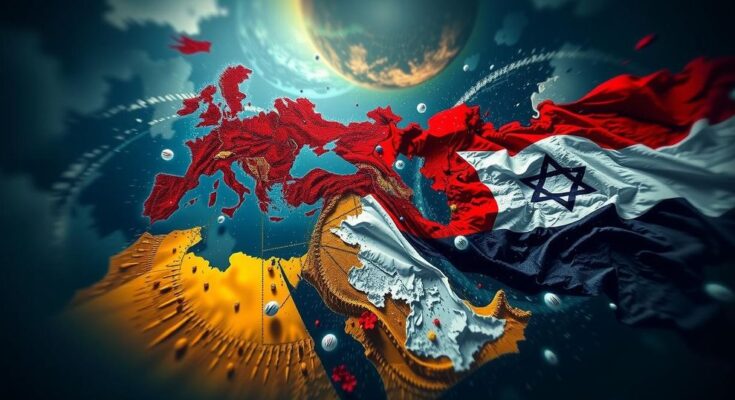Saudi Arabia’s foreign policy is pivoting away from Israel towards Iran following the Hamas attacks on October 7. The Kingdom now conditions future diplomatic ties on Israel’s acceptance of a Palestinian state. A recent meeting of Gulf and Iranian foreign ministers signifies a fragile rapprochement that reflects a broader regional shift.
In the aftermath of Hamas’s attacks on October 7, Saudi Arabia’s diplomatic trajectory has pivoted significantly from a potential normalization agreement with Israel. Just a year ago, the Kingdom was on the brink of establishing a formal relationship with Israel that would have redefined alliances in the Middle East, particularly at the expense of Iran’s influence in the region. However, a year into the ongoing conflict in Gaza, Saudi Arabia is now revisiting its historical enmity with Iran, suggesting that any future diplomatic agreements will be contingent upon Israel’s acknowledgment of a Palestinian state. This marks a notable departure for Saudi foreign policy. While Israeli Prime Minister Benjamin Netanyahu continues to assert that a deal with Riyadh remains possible, evidence of shifting dynamics is mounting. For the first time, the foreign ministers from the Gulf states convened collectively with their Iranian counterpart, reflecting initial steps toward a reconciliation that may help mitigate long-standing sectarian conflicts. The Iranian foreign minister, Abbas Araghchi, has actively engaged in regional diplomacy, marking significant visits to Saudi Arabia and other states including Iraq, Oman, Egypt, and Turkey—this latter visit being particularly salient as it represents the first by an Iranian foreign minister in a decade. Araghchi emphasized a shared concern among regional powers regarding the potential escalation of violence and the humanitarian crises resulting from the wars in Gaza and Lebanon, highlighting the interconnectedness of regional stability. As diplomatic overtures continue, the prospect of renewed hostilities looms large, with the evolving landscape reflecting a more complex web of alliances and grievances across the Middle East.
The article addresses the changing political landscape of the Middle East, particularly focusing on Saudi Arabia’s evolving diplomatic relations. Following the October 7 attacks by Hamas, Saudi Arabia’s interest in formalizing ties with Israel has diminished as it seeks to strengthen relations with Iran, a traditional adversary. This shift underscores the broader geopolitical dynamics at play in the region, including longstanding sectarian tensions and the ongoing crises in Gaza and Lebanon. The diplomatic activities surrounding these developments indicate a potential reconfiguration of alliances, with profound implications for regional security and political structures.
In conclusion, the Middle East is witnessing a significant diplomatic shift as Saudi Arabia recalibrates its foreign policy in response to current conflicts. The Kingdom is moving away from a potential normalization deal with Israel, instead opting to foster relations with Iran, contingent upon Palestinian statehood considerations. This emerging rapprochement among Gulf states and Iran marks a potentially transformative moment in regional politics, one that emphasizes the need for dialogue amidst ongoing tensions.
Original Source: www.nytimes.com




